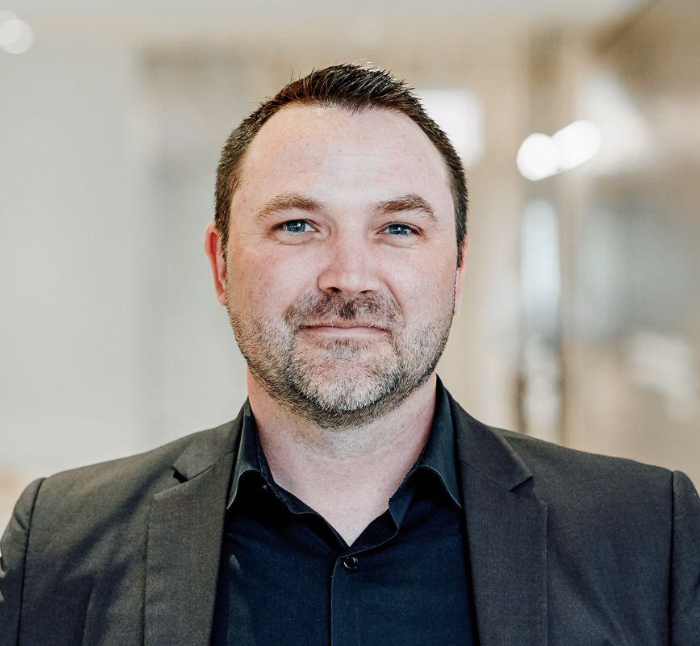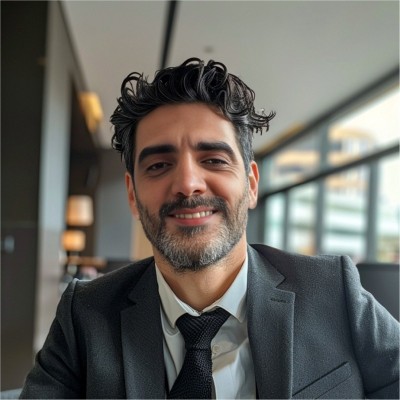WELCOME TO THE 2ND ANNUAL
mM Forum Summit
Over the past 20+ years, your unprecedented progress has paved the way for this unprecedented gathering, creating a unique opportunity for unprecedented industry-wide solutions to emerge. We are excited to welcome you all to Minneapolis for the second annual mindful MATERIALS Forum Summit.
As we will not have an opportunity for formal introductions during the Summit due to time restrictions, we wanted to provide an overview of this unprecedented group of people and organizations joining us and their work supporting our journey to the Materials Easy Button. We will have ample networking time to share insights on your work, as well as to scale connections/relationships Monday, Tuesday and Wednesday evenings (and sprinkled throughout the Summit itself) as that is also an important piece to our time together.
Please use this Briefing Book as your guide to level set on who is who, which organizations are involved, and to bring an understanding that will accelerate our collective work in achieving the Materials Easy Button. We’re thrilled to host you all.
To the future!
5:30–7:00 | Informal Happy Hour in the Hewing Lobby
Dinner on your own*
*we encourage you to join other summit attendees for group dinners: recommended restaurants
We'll be coordinating sector specific group discussions as follows:
12:00 | Registration
1:00 | Welcome + Facilitated Networking
1:30 | Presentation: “Setting the Stage”
1:45 | Facilitated Discussion: Building a Shared Vision
3:00 | Networking Break
3:30 | Presentation: “State of the Industry”
4:00 | Facilitated Discussion: Charting Our Path
5:00 | Closing Remarks
5:00– 6:30 | Happy HourDinner on your own*
*we encourage you to join other summit attendees for group dinners: recommended restaurants
We'll be coordinating cross functional group discussions throughout the day as follows:
8:30 | Breakfast + Networking
9:30 | Welcome & Opening Remarks
10:00 | Facilitated Discussion: Identifying Barriers
11:00 | Presentation: Solutions We See
11:15 | Facilitated Discussion: Ideating on Solutions
11:45 | Group Exercise: Solutions Mapping
12:15 | Lunch
1:15 | Solutions Mapping Whole Group Report Out
2:15 | Inspiration Round Table: Sustaining the Movement
2:45 | Collective Reflection and Closing
3:00 | Adjourn
4:30–6:30 | Informal Happy Hour at Modist Brewing
Dinner on your own*
*we encourage you to join other summit attendees for group dinners: recommended restaurants
Agenda

AvalonBay Communities, Inc.
Owners Forum Catalyst Member
Sector Representation: Residential/Multi-Family
AvalonBay Communities, Inc. is an equity REIT specializing in developing, redeveloping, acquiring, and managing apartment communities across premier U.S. markets. The company prioritizes long-term value creation for shareholders and has established itself as a leader in providing quality homes for its residents. With a portfolio of 299 apartment communities housing approximately 147,000 residents, AvalonBay integrates sustainable design and operational practices into its business, ensuring the quality, cost control, and risk mitigation of its developments. Their comprehensive approach, which spans design, development, construction, and management, allows AvalonBay to address the evolving needs of residents, associates, and stakeholders.
A key focus of AvalonBay's strategic initiatives involves reducing embodied carbon emissions, which are significant in their operations. In 2023, they implemented life cycle assessments (LCAs) for new developments to evaluate materials that contribute the most to embodied carbon, such as concrete, sub-flooring, and drywall. By piloting these lower-carbon materials and rewriting specifications, AvalonBay is committed to using more sustainable materials across future projects. Additionally, they are utilizing the Common Materials Framework to standardize product selection, focusing on sustainability across key material categories.
AvalonBay is participating in the Forum Summit to share insights and work together to reach agreement on scalable industry wide solutions.
Resources:

Carlos Fernandez

Brookfield Properties
Owners Forum Catalyst Member
Sector Representation: Residential, Academic, Commercial, Institutional, Retail, Industrial, Labs/Life Sciences
Brookfield is a commercial real estate company that manages properties in many different sectors internationally. As a high volume purchaser of building materials, they play a key role in influencing material specifications within the building materials ecosystem. The company is deeply involved in construction, procurement, and specification across a range of environments, from residential homes to large-scale commercial projects like high-rise office towers and hotels. Their expertise spans multiple sectors, including academic, retail, institutional, and industrial buildings.
Currently, Brookfield's engagement in the mindful MATERIALS process is on hold due to an internal restructuring. The goal during this transition is to maintain the company’s involvement in sustainable material initiatives until the restructuring is completed, at which point the responsibility will be handed over to a more suitable person within Brookfield. Andreas Kabelitz is committed to keeping the company engaged and ensuring a smooth handover to the new ESG leader when appointed. Andreas has deep process knowledge in construction/procurement/specification in any built environment, from single family homes to multi million dollar high rise office towers or multi family buildings, retail project or Hotels. He brings tremendous procurement and supply chain expertise to the Forum Summit and Owners Forum overall.
Brookfield’s participation in the Summit aims to keep them aligned with mindful MATERIALS, ensuring a smooth transition for the incoming ESG leader and continued engagement with sustainable practices in the future.
Resources:

Andreas Kabelitz

The Green Cities Company
Owners Forum Catalyst Member
Sector Representation: Residential, Commercial, Retail
The Green Cities Company is an investment management firm that currently has twelve assets across the nation under management. For over a decade they have sought innovation through the confluence of environmental, social and investment value. With this forward-thinking strategy and fully integrated in-house expertise, the firm acquires, manages, and develops office, mixed-use and multi-family assets. Deep experience in select U.S. markets, combined with meaningful attention to ESG considerations, positions The Green Cities Company for enhanced tenant retention and superior operations. This differentiated approach, along with disciplined risk management, encompasses the environmental footprint of an asset, the diversity and inclusivity of its community and the wellbeing and fulfillment of its occupants and neighbors. Each member of the team is dedicated to a resilient investment portfolio that yields results to the firm’s investors, employees, tenants, and communities. Green Cities works with all our AEC teams on all design, materials, construction and repairs. They actively report 4 out of 5 categories of the Common Materials Framework (currently excluding Circularity).
Jennie has been responsible for selecting and assessing materials in both base building and FFE for the past ten years. She is well versed in the issues of transparency and lack of reliable data, and I understand the burdens that each distinct group (Owners/AEC/Manufactures) face.
By participating in the Forum Summit, they want to accelerate understanding between all parties as the industry's ability to source and procure and report on more sustainable products is crucial. They are grateful to have a community where they can discuss these important issues. Tenants demand healthy materials and we would like nothing more than to give them that - it's just a much harder proposition than most people would imagine.
Resources:
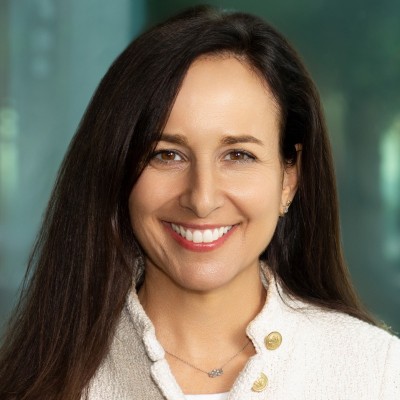
Jennie Kalberer

Oregon Department of Environmental Quality (DEQ)
Owners Forum Cohort 2 Member
The Oregon Department of Environmental Quality (DEQ) is committed to its 2050 Vision for Materials Management, focusing on responsible material use, resource conservation, environmental protection, and enhancing quality of life. Through its Built Environment program, DEQ uses a life cycle materials management approach to reduce the environmental impacts of building and construction materials. The program’s mission is to foster relationships, shape policy, and support work that mitigates harmful impacts of the built environment while promoting equity and well-being for all.
Strategically, DEQ is actively working to reduce the environmental footprint of building materials, addressing climate change, health concerns, and equity. As the environmental agency for Oregon, DEQ is involved in numerous collaborative efforts, such as the Pacific Coast Collaborative Low Carbon Construction Task Force and the West Coast Climate and Materials Management Forum. The agency conducts original research, provides expert testimony, collaborates with other state and local entities, and offers technical assistance to support policies and initiatives aimed at minimizing the impacts of construction materials.
DEQ's recent efforts include studying opportunities to reduce embodied carbon in building codes, developing sustainability guidelines for state projects, incentivizing local manufacturers to create Environmental Product Declarations (EPDs), and consulting on reducing embodied carbon in state construction. Past initiatives have supported smaller housing, deconstruction, and low-carbon concrete. By participating in the Summit, DEQ aims to collaborate with other organizations to align efforts and strengthen initiatives within the materials ecosystem.
Their program is focused on addressing the impacts of materials holistically through policy, programs, initiatives, incentives, and other support including working in all 5 CMF Impact Areas.
They are seeking to expand collaborations with organizations and people throughout the material ecosystem to find opportunities to align and bolster all of our efforts.
Resources:

Amanda Ingmire

Brightworks Sustainability
Owners Forum Cohort 2 Member
Brightworks Sustainability is a leading sustainability consulting firm in the United States, with a track record of advancing sustainability since 2001. The firm works with visionary clients to establish and implement innovative sustainability programs, focusing on enhancing operational performance, achieving net zero carbon targets, addressing human health in buildings, and promoting holistic sustainability. Through their leadership, Brightworks challenges traditional approaches to sustainability, driving ambitious change across industries.
In support of the building materials industry, Brightworks has decades of experience advising project teams on the specification of sustainable building products. They focus on providing cost-effective, market-ready solutions, while also promoting best-in-class products. Brightworks is particularly proud of its role as contracted staff to mindful Materials, contributing to the development of the Common Materials Framework (CMF). They also offer the “Basic, Better, Best” (BBB) framework, designed to help project teams quickly identify sustainable products that meet varying levels of sustainability criteria, from baseline requirements to market leadership. Brightworks Sustainability supports innumerous Owners as a consultant in the build out and management of their sustainable materials programs and will be bringing all of their perspectives into the room.
Through their participation in the Summit, Brightworks hopes to continue driving progress in sustainable materials and beyond.

Chris Forney

The Durst Organization
Owners Forum Catalyst Member
Brightworks serves as their materials consultant and will be able to share some perspectives of their experiences in the room.

Kaiser Permanente
Owners forum Catalyst Member
The mM team connected with Kaiser Permanente prior to the Summit, Perkins & Will serves as their materials consultant and will be able to share some perspectives of their experiences in the room.

Salesforce
Owners Forum Catalyst Member
Brightworks serves as one of Salesforce’s materials consultants and will be able to share some perspectives of their experiences in the room.

Boulder Associates
AEC Forum Catalyst Member
Sector Representation: Healthcare, Commercial, Labs/Life Sciences
As an architectural and interior design firm, the organization plays the role of specifiers within the materials ecosystem, focusing on designing healthcare spaces. Annually, the firm completes approximately 2.5 million square feet of healthcare projects. They are a signatory to the AIA A&D Materials Pledge, showcasing their commitment to sustainability and responsible material use. To further this mission, the firm developed an internal automated material rating system in 2017, which evaluates materials based on health, performance, and global impact.
Strategically, the firm is dedicated to creating awareness of the environmental and health impacts of the materials they specify. The automated material rating system helps inform better material choices across their projects, contributing to transparency and sustainability in the building materials industry. As part of their 2023 report, the firm continues to advance its commitment to specifying sustainable materials, aligning with their goals under the AIA A&D Materials Pledge.
Through the development of their rating system, the firm has gained significant expertise in materials assessment and specification, and they are eager to share their insights and lessons learned. By participating in the Summit, the organization aims to contribute to broader industry progress on product transparency, establishing a clear definition of sustainable materials, and developing reliable sourcing methods for these materials across the industry.

Kristi Ennis

Heather Park
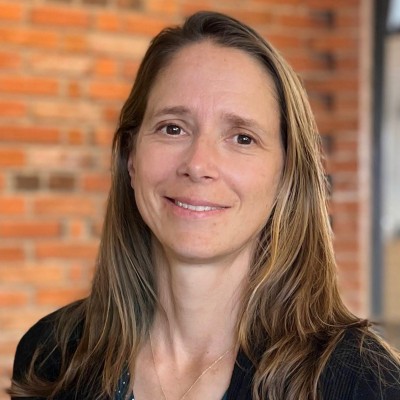
Lydia Brown

DPR Construction
AEC Forum Catalyst Member
Sector Representation: Academic, Healthcare, Commercial, Industrial, Labs/Life Sciences
DPR Construction is a contractor that specializes in self-performing a wide range of trades, including concrete, drywall, electrical, solar, doors, and hardware. DPR’s focus on sustainability and innovation allows them to influence the materials ecosystem significantly.
Strategically, DPR is committed to advancing sustainability within the building materials industry. Ranked #4 on the ENR list of green contractors, 52% of DPR's revenue in 2023 came from green projects. The company has signed onto the Sustainable Construction Leaders Pledge, received a JUST label from the International Living Future Institute (ILFI), and committed to the Science Based Target Initiatives (SBTi). With a score of 46 on Ecovadis, DPR continues to push forward sustainable practices in construction, emphasizing transparency and accountability.
DPR’s past efforts include actively participating in the Common Materials Framework initiative, ensuring materials transparency across projects. The company is dedicated to implementing best practices both on-site and in their offices, with multiple WELL-certified spaces and ambitious sustainability goals for 2030, including achieving zero waste, reducing carbon emissions, and offsetting air travel. Through participation in the Summit, DPR hopes to collaborate with other industry leaders to promote product transparency from a contractor's perspective.
Resources:

Alicia Ravetto

Gensler
AEC Forum Catalyst Member
Gensler is a global architecture and design firm that focuses on reducing embodied carbon and enhancing material health through its Gensler Product Sustainability Standards (GPS). These standards are aligned with the Common Materials Framework (CMF) and serve to improve the environmental performance of Gensler's projects.
The firm is deeply committed to sustainability in the building materials industry. Having signed the AIA Materials Pledge, Gensler has developed material criteria that align with the Common Materials Framework to guide its design process globally. The firm works actively to integrate these criteria into its projects, ensuring they meet sustainability goals while reducing the environmental impact of building materials used across various sectors.
By working closely with manufacturers and the design community, Gensler fosters industry alignment and builds momentum toward more sustainable practices, contributing significantly to the reduction of embodied carbon and improving material health. They are seeking to leverage the Forums efforts to scale industry wide alignment and momentum to scale this work collectively.
Resources:

David Briefel

Sarah Templin

Gresham Smith
AEC Forum Cohort 2 Member
Sector Representation: Academic, Commercial, Retail
Gresham Smith is an Architecture and Engineering firm working across several vertical markets, including Aviation, Life and Workplaces, Education, Healthcare, and Industrial sectors. The firm is dedicated to creating responsible solutions that positively impact the built and natural environment by collaborating with clients, communities, and industry peers. As thoughtful specifiers of materials, Gresham Smith’s choices significantly influence overall material demand within the construction and design ecosystem.
The firm’s strategic initiatives focus on environmental, social, and governance (ESG) commitments, with priorities including resilience, reducing embodied and operational carbon, and avoiding harmful materials such as those on the red list. Gresham Smith is actively working toward the AIA 2030 and SE 2050 challenges, both aimed at reducing the carbon footprint in architecture and construction. Additionally, they plan to formalize their commitment by signing the AIA Materials Pledge, reinforcing their dedication to sustainability.
Gresham Smith’s past sustainability efforts include organizing a Mindful Materials library and integrating sustainable materials into project specifications. The firm also utilizes tools like EC3 to track embodied carbon in projects. Through participation in the Summit, Gresham Smith aims to gain deeper insights into material selection processes, better align their practices with industry peers, and focus on key metrics and standards for sustainability in the building materials industry. They are seeking through the Forum efforts an understanding of the translation process and alignment with industry peers on where to focus efforts/metrics/standards.
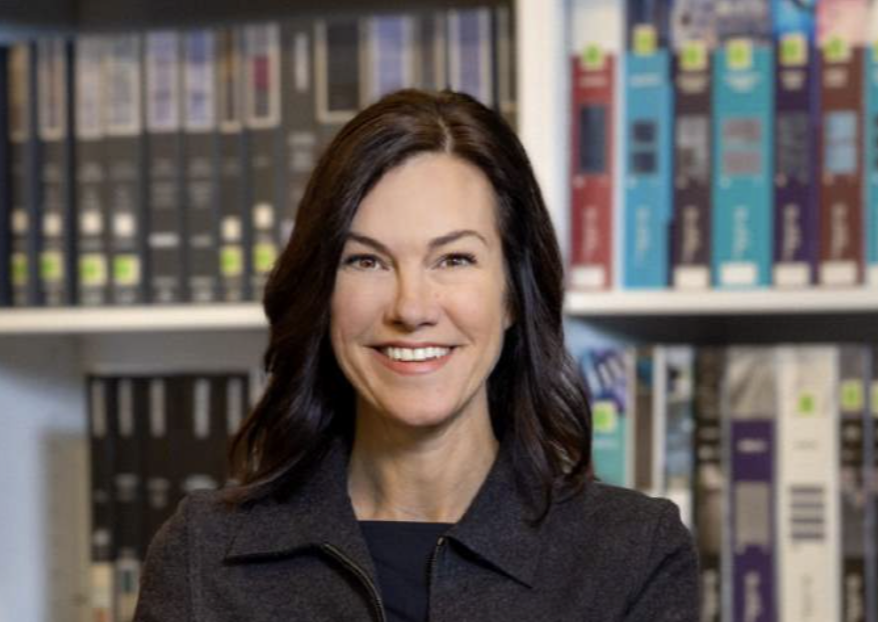
Michele McMinn

HKS
AEC Forum Catalyst Member
Sector Representation: Healthcare, Commercial
HKS is a architectural firm playing a key role in the materials ecosystem by promoting sustainable design practices. As a signatory of the AIA Materials Pledge the firm is dedicated to educating its design teams and developing tools that encourage the use of sustainable materials. Through these efforts, HKS aims to influence the building materials industry by integrating sustainability into their projects and design processes.
The firm’s strategic initiatives focus on providing designers with sustainable material recommendations and supporting circular economy principles, such as adaptive reuse. HKS has created a reference list of vendors aligned with these practices and developed internal policies for engaging with vendors who comply with their sustainability goals. Additionally, they have conducted research on the carbon footprint of commercial interiors and played an integral role in launching mindful MATERIALS.
HKS's sustainability efforts are aligned with the five Common Materials Framework (CMF) Impact Areas. They are developing tools to ensure material health by vetting for EPDs, HPDs, and chemicals of concern, while working on a Design for Freedom pilot project to advance social health and equity. The firm also advocates for manufacturers with regenerative practices and is focused on reducing global warming potential (GWP) and promoting carbon sink materials as part of their climate health efforts. By participating in the Summit, HKS hopes to share and gain knowledge of current best practices that informs a path to a better industry state in sustainable design.
Resources:

Allison Smith

Lisa Adams

Little Diversified Architectural Consulting
AEC Forum Cohort 2 Member
Little is a national multidisciplinary design firm dedicated to fostering a regenerative future through responsible and thoughtful design. As leaders in architecture and engineering, the firm plays a key role in the materials ecosystem by advancing material transparency, sustainability, and regenerative practices. Little emphasizes the importance of educating both its internal teams and the broader design community to promote responsible material selection and the use of regenerative design strategies.
The firm’s strategic initiatives focus on key areas such as Health, Energy, Water, and Social Equity. Little has developed its own Materials Transparency Standard and is actively working toward carbon reduction and building performance strategies in every project. As a signatory of the AIA Materials Pledge, the AIA 2030 Challenge, SE 2050, and MEP 2040, Little is committed to achieving carbon-neutral, energy-efficient, and sustainable buildings. Through participation in the AIA Large Firm Roundtable, Little advocates for broad industry changes in support of these goals.
Vickie Breemes is a spec writer by trade, she loves materials and have over 27 years of experience in the design industry. As the National Director of Advanced Building Technologies and a core member of Little’s Regen CoLab, Vickie’s passion for human and environmental health led to the development of Little’s first materials transparency standard, integrated material transparency into our construction documents, implemented sustainability benchmarks and carbon measurements for projects and Little. She also co-chairs the Large Firm Roundtable Materials Working Group.
By participating in the summit, Little looks forward to the opportunity to learn from and collaborate with a diverse group of industry professionals while contributing through Little's expertise to elevate industry wide solutions to scale the use of the Common Materials Framework.
Resources:

Vickie Breemes

LPA Design Studio
AEC Forum Cohort 2 Member
Sector Representation: Academic, Healthcare, Commercial, Institutional, Retail, Labs/Life Sciences
LPA Design Studio is an integrated design firm comprised of architects, engineers, landscape architects, and interior designers. Their role in the materials ecosystem involves making thoughtful decisions about building materials that align with these broader sustainability and community objectives.
Currently, LPA is actively supporting the building materials industry through strategic initiatives like signing the AIA Materials Pledge and completing its first round of reporting. The firm has also created a new role for a sustainable materials specialist, who helps designers make more informed decisions about materials, promoting greater awareness of sustainability within the company’s project designs.
LPA hopes to gain new ideas and insights from participating in the Summit, especially in addressing materials selection at a large scale and understanding the future direction of the industry.
Resources:

Ellen Mitchell
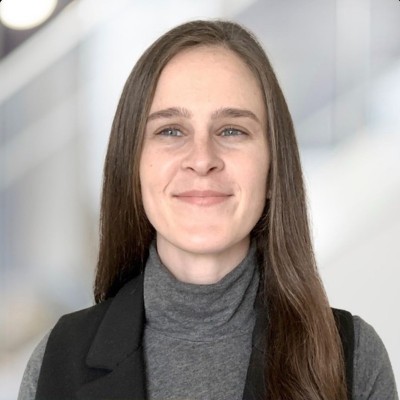
Jill Pedro

MSR Design
AEC Forum Catalyst Member
Sector Representation: Residential, Academic, Commercial, Institutional
MSR Design is an architecture and interior design firm dedicated to creating sustainable, human-centric, and transformative spaces. Established in 1981, the firm focuses on using healthy, low-carbon materials while promoting social and ecosystem health. With a commitment to circularity and sustainable practices, MSR Design tailors each project to its client's needs, delivering work that is both functional and culturally resonant, while ensuring buildings age gracefully over time.
The firm is deeply involved in the building materials industry by focusing on sustainable material selection, energy performance, and long-term environmental impact. MSR Design structures its sample library around the MSR Material Criteria, which aligns with the AIA Materials Pledge. They require transparency documentation like HPD, EPD, and Declare Labels for products to be included in their designs. Additionally, MSR Design actively avoids specifying materials that contain harmful chemicals, such as vinyl and finishes with PFAs, to prioritize human and ecosystem health. With over 15 years of expertise in materials health and carbon reduction, MSR Design is developing repeatable material reuse strategies for commercial projects.
By participating in the Summit, they hope to help get this framework underway so information providers can align their responses with it. They also hope to stay informed on trends and innovations, and build partnerships to enhance its sustainable design practices.
Resources:
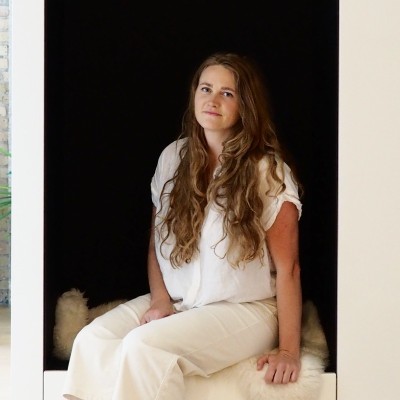
Veronica McCracken Karr

Simona Fischer

Ryan Companies
AEC Forum Cohort 2 Member
Sector Representation: Residential, Healthcare, Commercial, Retail, Institutional, Industrial, Labs/Life Sciences
Ryan Companies is a private commercial real estate firm that offers a full range of services including real estate development, design, construction, and property management. With $4 billion in annual revenue, Ryan Companies works across sectors such as e-commerce, food and beverage, healthcare, advanced manufacturing, and senior living. The firm is committed to achieving net-zero carbon emissions by 2040 (and have signed the Climate Pledge) across all scopes (1, 2, and 3) and plays a key role in influencing materials specifications and supplier partnerships in the building industry. The firm is part of an industry-wide initiative to decarbonize construction projects, and are currently working to confirm the mix of software solutions we'll use to support carbon measurement, tracking and reporting for construction materials and operations.
Strategically, Ryan Companies has implemented a procurement program that helps suppliers align with their sustainability goals and provides preferential pricing. They are also developing sustainability strategies for 23 categories of materials identified in a recent materiality assessment, and are working on solutions for carbon measurement, tracking, and reporting.
Ryan Companies actively contributes to industry sustainability through collaboration with peers and by advancing their supplier sustainability program, which focuses on decarbonization and ESG improvements. In partnership with peer construction companies, Ryan Companies recently published through the Associated General Contractors of America a playbook for construction project decarbonization in an effort to create a common approach across the America construction industry.
Their participation in the Summit includes a desire for the following:
1. Gain an understanding from manufacturers on how they’re able to support this effort
2. Better understanding of the overall effort.
3. Better understanding of what we need to do to support success
4. How best to plan and sequence internal actions that align with the plan and timeline of the CMF strategy.
Resources:

Britta Sortland Ryan

Korynn Newville

Skanska
AEC Forum Cohort 2 Member
Sector Representation: Residential, Healthcare, Commercial, Retail, Institutional, Industrial, Labs/Life Sciences
Skanska is a global development, construction management, and consulting company based in Stockholm, with significant operations in the U.S. and other countries. Depending on the project, Skanska can serve as the owner, consultant, or builder, allowing them to influence material selection, create policy, and manage the supply chain at various levels. Their role within the materials ecosystem involves driving innovation and advocating for sustainable practices across the construction industry.
Skanska is currently focused on numerous strategic initiatives to promote sustainability in the building materials industry. These efforts include their own innovations like the development of EC3, biochar production, low-carbon concrete, and circular brick manufacturing. Additionally, they work directly with suppliers in materials like concrete, steel, asphalt, and mass timber, while engaging in industry advocacy through partnerships and policy development, such as contributing to the AGC decarbonization playbook and other research publications.
By participating in the Summit, Skanska aims to assess how different firms utilize the forum setting and gauge their interests for future collaboration. This involvement helps Skanska stay informed on industry trends while continuing to advocate for a more sustainable supply chain and construction practices globally.
Resources:
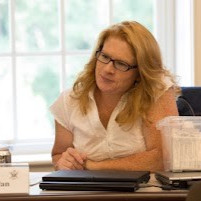
Myrrh Caplan

Perkins—Eastman
AEC Forum Catalyst Member
Perkins Eastman is an architectural firm that plays a crucial role in the materials ecosystem through the selection, specification, and advocacy of better building materials. The firm integrates sustainability into its processes through library policies, master specifications, and project criteria, all while striving to improve material design, availability, and installation standards across their projects.
Strategically, Perkins Eastman is deeply involved in various sustainability initiatives. The firm is a signatory of the AIA Materials Pledge, reporting on its progress and updating its materials library and specifications to incorporate performance criteria. Additionally, the firm is working on publishing a comprehensive Materials Vision & Action Plan and offers internal education and resources to improve material selection. They are also exploring new tools to enhance the material selection process.
The firm’s leadership in material health is further evidenced by its involvement in broader industry efforts. One of their team members co-chairs the AIA Materials Pledge Working Group and contributed to creating a new reporting framework.
Perkins Eastman hopes to leverage collective actions through participation in the Summit to streamline resources, tools, and information, as well as gather inspiration for their future sustainability efforts.
Resources:

Christine Vöhringer

ZGF is a sustainable design firm that encompasses a diverse range of professionals, including architects, interior designers, landscape architects, and urban planners. The firm is committed to environmental stewardship and has signed the AIA Materials Pledge, the AIA 2030 Commitment, and the US Architects Declare initiative, highlighting its dedication to sustainable design and materials choices.
Currently, ZGF is focused on setting sustainable materials goals for every project it undertakes. They are also working on developing efficient systems to track the metrics associated with the Materials Pledge for annual reporting. This ensures accountability and promotes progress toward more sustainable building practices across all projects.
ZGF brings significant expertise to the conversation around sustainable materials. The firm has developed internal resources to guide sustainable material selection, including the ZGF Green Dot product criteria, and has been instrumental in the creation of the AIA Materials Pledge.
By participating in the Summit, ZGF aims to accelerate the adoption of the Common Materials Framework (CMF) and enhance the industry's ability to select and install sustainable products more efficiently.
ZGF Architects
AEC Forum Catalyst Member

Lona Rerick

Arathi Gowda

DLR Group
AEC Forum Catalyst Member
Sector Representation: Academic, Commercial, Institutional
DLR Group is an integrated firm offering architectural, interiors, engineering, planning, and specialty services across 32 locations, including two international offices. As designers and specifiers, the firm significantly influences material choices in the built environment. As a signatory of the AIA Material Pledge, they are dedicated to curating sustainable material libraries, updating specifications, educating their team and clients, and advocating for conscious material selection through the Common Materials Framework (CMF).
Following their AIA Material Pledge commitment, the firm began by focusing on human health and eliminating harmful chemicals from their material libraries, such as Red List chemicals. Their multi-year effort culminated in only stocking Red List Free and Approved materials in their interior libraries. Now, they are working on climate health, tracking the embodied carbon of interior components, benchmarking, and advocating for improvement. They also plan to update their specifications to include criteria for circular economy, ecosystem health, social health, and equity practices.
The firm hopes to use the Summit as an opportunity to share knowledge, collaborate with peers, and help create a "materials easy button" by fostering constructive conversations across the industry.
Resources:
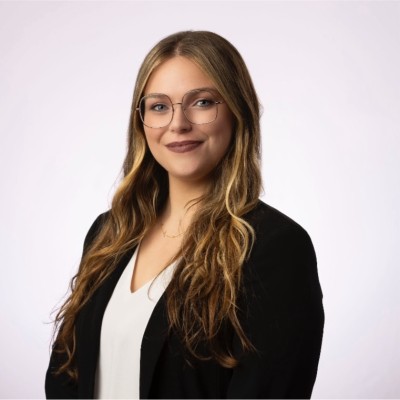
Karli Kronmiller

Arup
AEC Forum Cohort 2 Member
Arup is a global collective of designers, consultants, and experts dedicated to sustainable development, committed to shaping a better world. By collaborating with clients and partners, Arup leverages imagination, technology, and expertise to address critical challenges in the materials ecosystem. The organization’s core values focus on humane and excellent practices, driving innovation and sustainable development initiatives worldwide.
Strategically, Arup aligns its operations with the United Nations Sustainable Development Goals (SDGs), working across all 17 categories to guide its business practices. The organization balances its pursuit of high-quality standards with its dedication to ethical and humane outcomes. Arup’s initiatives prioritize sustainability, aiming to positively impact the built environment by contributing to efforts in human health, carbon reduction, the circular economy, and climate resilience.
Arup’s past and present contributions include involvement in various working groups such as HPDC Social Equity, USGBC Social Equity, and Design for Freedom. Their projects span multiple sectors, including healthcare, commercial, institutional, industrial, life sciences, and transit, with over 1 million square feet of projects completed annually. Arup's sustainability efforts focus on improving human health, advancing carbon neutrality, fostering social equity, and restoring natural ecosystems.
Participation in the upcoming Summit is intended to support the development of a "Common Materials Framework" for greater interoperability between sustainability certifications across key domains like human rights, carbon footprint, and circularity.

Eveline Lam

Arup is a global collective of designers, consultants, and experts dedicated to sustainable development, committed to shaping a better world. By collaborating with clients and partners, Arup leverages imagination, technology, and expertise to address critical challenges in the materials ecosystem. The organization’s core values focus on humane and excellent practices, driving innovation and sustainable development initiatives worldwide.
Strategically, Arup aligns its operations with the United Nations Sustainable Development Goals (SDGs), working across all 17 categories to guide its business practices. The organization balances its pursuit of high-quality standards with its dedication to ethical and humane outcomes. Arup’s initiatives prioritize sustainability, aiming to positively impact the built environment by contributing to efforts in human health, carbon reduction, the circular economy, and climate resilience.
Arup’s past and present contributions include involvement in various working groups such as HPDC Social Equity, USGBC Social Equity, and Design for Freedom. Their projects span multiple sectors, including healthcare, commercial, institutional, industrial, life sciences, and transit, with over 1 million square feet of projects completed annually. Arup's sustainability efforts focus on improving human health, advancing carbon neutrality, fostering social equity, and restoring natural ecosystems.
Participation in the upcoming Summit is intended to support the development of a "Common Materials Framework" for greater interoperability between sustainability certifications across key domains like human rights, carbon footprint, and circularity.
Turner Construction
AEC Forum Cohort 2 Member

Monica Wentz
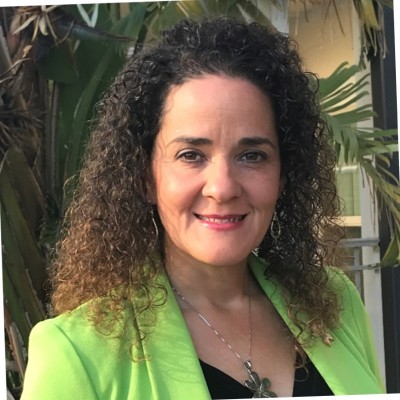
Lisa SanFilippo

HOK is a global leader in the design industry, dedicated to creating sustainable communities and building environments. With a long-standing commitment to sustainability, HOK has been at the forefront of integrating innovative ideas in interior design and architecture. As one of the first signatories of the AIA 2030 Commitment, RIBA 2030 Climate Challenge, and SE 2050, HOK is resolutely focused on achieving carbon neutrality across its global design portfolio by 2030. The recent release of the HOK Climate Action Plan 2024 marks a significant milestone in the firm’s journey toward decarbonizing the built environment.
HOK embeds health, wellbeing, and sustainability principles into every project, from conception through building occupancy. The firm utilizes globally recognized sustainability rating systems such as LEED, BREEAM, WELL, Fitwel, Passive House, SITES, and RESET to measure, manage, and report the sustainability performance of its projects. HOK maintains clear expectations for its partners—including manufacturers, consultants, and vendors—ensuring alignment with its sustainability goals through detailed specifications, collaboration, and continuous research and publication.
HOK is actively engaged in healthy materials initiatives across the industry, focusing on whole-building life cycle assessment, embodied carbon reduction, and the management of chemicals of concern. The firm tracks materials for all interior projects globally and has established 2025 sustainability targets, continuously refining these goals through data-driven insights from four years of collected data. As a founding member of the Healthy Product Declaration Collaborative, HOK plays a leading role in advancing transparency and sustainability in materials management across the design industry.
HOK
AEC Forum Cohort 2 Member

Christine Vandover

Elizabeth Baxter

Buro Happold provides a range of engineering and advisory services, including structural, facades, and MEP engineering, along with sustainable building and city-scale advisory services. The firm is deeply involved in material specification writing, life cycle assessments (LCA), and ethical labor and health analysis for materials. With a focus on responsible sourcing and the development of a common framework for material comparisons, Buro Happold supports both their organization and clients by offering essential expertise in these areas.
The company is actively involved in industry groups such as SE 2050, MEP 2040, and the Carbon Leadership Forum (CLF), contributing data and helping shape strategies to reduce material impacts. Buro Happold has introduced embodied carbon and materials goals into its Net Zero Routemap, tracking progress across all global projects. In addition, they create computational tools like the BHoM LCA Toolkit, allowing them to efficiently use materials-based APIs to support sustainability efforts in design and construction.
By participating in the Summit, Buro Happold hopes to stay on top of industry trends in the materials space, develop connections with manufacturers, standards providers, and developers, and engage with stakeholders they do not commonly interface with directly on projects. They aim to identify the most efficient ways to contribute to the Common Materials Framework initiative, further advancing their efforts in circularity, carbon reduction, and whole-life carbon management.
Resources:
Buro Happold
AEC Forum Catalyst Member

Ofek Bruhis

Shivanie Rambaran

ASSA ALBOY
Manufacturers Forum Catalyst Member
ASSA ABLOY is a manufacturer of doors, frames, hardware, and access control solutions, providing sustainable products and transparent documentation on their environmental, health, and social impacts. Their role in the materials ecosystem focuses on offering stakeholders the necessary information to make educated and responsible choices regarding their products, contributing to the broader sustainability goals in the construction and design industries.
The company is actively engaged in several strategic initiatives to support the building materials industry, collaborating with various industry partners such as USGBC chapters, CAGBC, New York Passive House, and BuildGreenCT. ASSA ABLOY is currently working on developing a new iteration of its multiple attribute label in collaboration with GreenCircle Certified, called Certified Sustainability Facts (CSF), which will align with the Common Materials Framework (CMF). This effort underscores their commitment to advancing sustainability and transparency within the industry.
ASSA ABLOY has contributed significantly to the industry through participation in panels, presentations, and collaborations with key sustainability groups. Their expertise is further demonstrated by their use of Environmental Product Declarations (EPDs), Health Product Declarations (HPDs), and other certifications to meet sustainability standards across all five impact areas of the CMF. By participating in the Summit, ASSA ABLOY seeks feedback on how manufacturers can be recognized and rewarded for their sustainability commitments and contributions.
They are looking forward to joining the Forum Summit to gain feedback on how and when other stakeholder groups are going to ensure manufacturers are rewarded for their commitments and contributions.
Resources:
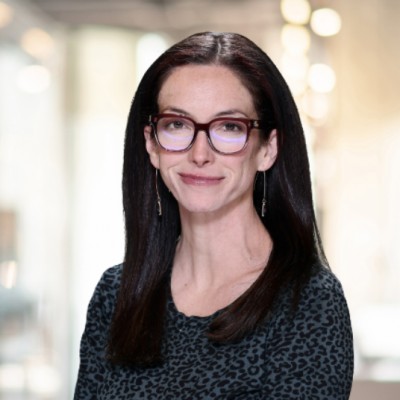
Erin Spadavecchia

Carnegie Fabrics
Manufacturers Forum Cohort 2 Member
Carnegie Fabrics is a manufacturer of sustainable textiles, wallcoverings, draperies, and acoustic solutions for the built environment. The company’s mission is to galvanize the architecture and design community by providing materials that matter, with a commitment to sustainability, creativity, and performance. Founded 75 years ago, Carnegie continues to invest in innovation and has upheld its promise to remain 100% PVC-free, offering customers sustainable alternatives that contribute to healthier indoor environments.
Currently, Carnegie is celebrating its 75th anniversary of being vinyl-free and is deeply committed to transparency in all its product lines. The company is dedicated to helping designers and building owners create spaces with sustainable, high-performance textile and acoustic solutions. Carnegie’s ongoing strategic initiatives focus on product development, collaboration, and education to support the industry and align with the Common Materials Framework's sustainability goals across key impact areas such as material health, circularity, and climate.
Carnegie’s sustainability efforts are comprehensive, covering all five CMF impact areas—material health, circularity, climate, water, and social impact. The company’s Bio-based Xorel product is a prime example of this commitment, offering a plant-based, non-toxic alternative to vinyl that contributes positively to climate health and supports circular economy principles.
By participating in industry summits, Carnegie aims to enhance its products to meet the growing demands of sustainable design and continue building a better future with like-minded industry leaders.
Resources
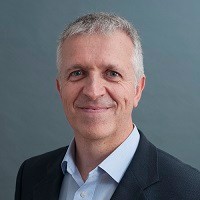
Gordon Boggis

David Dembowitz

nCompass Solution in partnership with Superior Essex Communications and Legrand
Manufacturers Forum Catalyst Member
Legrand is a global manufacturer of power, light, and data products with a strong commitment to sustainability. Legrand focuses on reducing its carbon footprint, integrating circular economy principles into its product design and manufacturing, promoting diversity and inclusion, and ensuring the health and safety of its employees. The company actively provides documentation such as EPDs and HPDs for its products to align with the Common Materials Framework (CMF) and meet market demands.
Superior Essex Communications is a manufacturer of category cables with a strong commitment to sustainability. As a key player in the materials ecosystem, they focus on producing industry-leading sustainable products and are dedicated to achieving zero waste at their facilities. Their role in the industry is centered on providing high-quality, environmentally responsible products that align with modern sustainability goals.
Since 2008, the partners of nCompass (Superior Essex Communications and Legrand) have been committed to advancing sustainability in the built environment. By equipping their catalog of communications infrastructure solutions comprehensively with third party verified sustainability and transparency documentation, nCompass products are in alignment with the mindfulMaterials Common Materials Framework (CMF) across all five key areas: Climate Health, Human Health, Ecosystem Health, Social Health and Equity, and Circular Economy.
-
Climate Health: 150+ EPDs & PEPs covering 1,000+ SKUs, Product embodied carbon data available in EC3, Company-wide SBTi carbon reduction targets
-
Human Health: 35+ HPDs covering 1,000+ SKUs, 8 Product families with Red List Approved Declare labels, 3 Product families that are Living Product Challenge Imperative Certified
-
Ecosystem Health: Zero Waste to Landfill Manufacturing at its Hoisington, KS facility since 2014, 3rd party certification for sustainable manufacturing practices
-
Social Health and Equity: Alignment with the Design for Freedom Principals and Toolkit, ESG roadmaps, Facility and Supply chain sustainability and ethics policies
-
Circular Economy: 100% recycled content packaging offerings, Aspiring to a zero-waste goal for construction activities by designing for resiliency, adaptability, disassembly, and reuse
Representatives from both Superior Essex Communications and Legrand are attending the Forum Summit to represent a missing voice of MEP/Communications/Data Center products in the room with the hopes to scale impact reduction and see these products be considered as a part of the sustainable impact reduction and selection process into the future.
Resources

Luke Dias

Rene Parrinello

Chris Frietag

MAPEI USA
Manufacturers Forum Catalyst Member
MAPEI is a global manufacturer specializing in floor-setting materials, admixtures, and pedestal systems. As a key player in the materials ecosystem, the company is committed to sustainability and transparency, providing multi- and single-attribute certifications such as Environmental Product Declarations (EPDs), material ingredient reports, and VOC emissions certifications to help stakeholders make informed decisions.
To support the building materials industry, MAPEI focuses on sustainable practices, offering products that align with environmental standards and recycled content requirements. The company actively participates in industry sustainability initiatives and has a strong presence in trade associations and working groups, such as the mindful MATERIALS Manufacturer Working Group, to drive sustainability forward within the flooring industry.
With extensive expertise in sustainable building practices, including leadership roles like LEED MR TAG Chair, MAPEI brings valuable knowledge to discussions around material health and transparency.
By participating in the Summit, MAPEI aims to enhance its ability to connect its sustainability data with platforms utilized to make product level decisions, as well as build stronger partnerships with other organizations.
Resources:
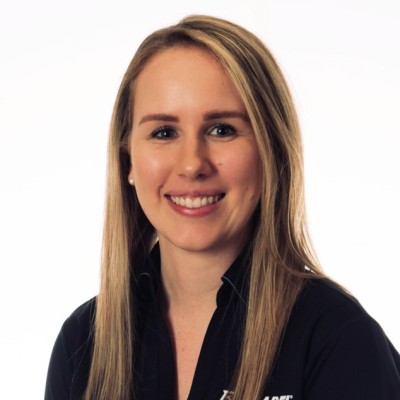
Brittany Storm

PROSOCO
Manufacturers Forum Cohort 2 Member
PROSOCO is a manufacturer of high-performance cleaners, coatings, and sealants for concrete, masonry, and building envelope applications, supporting contractors and project teams across commercial, institutional, and residential sectors. Their goal is to help create durable and sustainable building assemblies through the use of their specialized products.
As an early adopter of materials disclosure and optimization programs, PROSOCO has worked closely with project teams and owners to refine its products. A notable example is their collaboration on the Bullitt Center project, where they eliminated phthalate plasticizers and later permanently applied this improvement across their R-Guard product line. Their efforts demonstrate a commitment to creating more sustainable building solutions.
PROSOCO has a rich history of involvement in green building standards, with representation on various sustainability committees, including LEED MR TAG and ILFI Materials Health TAG.
Their sustainability initiatives focus on reducing the environmental impact of their products by transitioning from organic solvents to water-based carriers and minimizing packaging.
Through participation in the Forum Summit, PROSOCO sees a unique opportunity to learn about the mutual challenges faced throughout the green building ecosystem. Our hope is that we can identify roadblocks and help chart a path forward in streamlining an increasingly complex industry.
Resources:

Dwayne Fuhlhage

Saint Gobain
Manufacturers Forum Catalyst Member
Saint Gobain is one of the worlds largest manufacturers of building products, playing a key role in the materials ecosystem by producing essential materials used in construction and design. Their products support a wide range of building needs, contributing to the overall development of sustainable and durable structures.
The company is focused on achieving validated ESG (Environmental, Social, and Governance) goals through the Science Based Targets initiative (SBTi), with public reporting on their progress. Saint Gobain actively aligns its customer outreach with the Common Materials Framework (CMF) to ensure that sustainability and environmental responsibility remain at the forefront of their operations.
With a deep foundation in sustainability expertise, Saint Gobain continues to engage in industry conversations and initiatives to further its impact.
By participating in the Forum Summit, the organization aims to increase awareness and stay updated on the latest developments in sustainability within the building materials industry.
Resources:
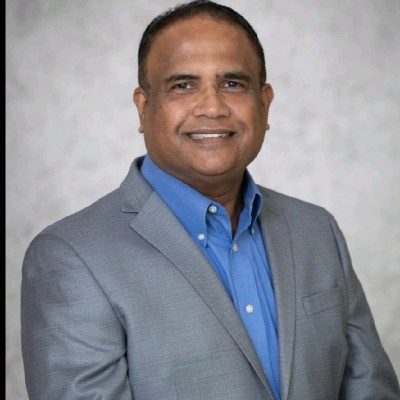
Raj Deshpande

Shaw Industries
Manufacturers Forum Catalyst Member
Shaw Contract, a subsidiary of Berkshire Hathaway, is a $7 billion global provider of flooring solutions, including carpet, resilient, hardwood, tile & stone, synthetic turf, and specialty items for both residential and commercial markets. The company prioritizes sustainability through the Cradle to Cradle (C2C) design principles, focusing on human, environmental, and climate health, circular economy, and social health & equity. Shaw Contract’s Corporate Sustainability team drives these efforts, ensuring sustainability is central to their product design, operations, and partnerships.
Currently, Shaw Contract is committed to sustainable product development based on C2C principles. The company manages raw material evaluations, product certifications, and regulatory compliance, while also educating internal teams and customers about their sustainability approach. This multifaceted strategy supports the building materials industry by ensuring sustainable practices are embedded throughout the manufacturing process and communicated effectively to customers.
With over two decades of C2C design experience, Shaw Contract has a long-standing commitment to sustainability, aligning its efforts with the five CMF impact areas and other industry certifications like Declare, HPD, and EPD.
By participating in the Forum Summit, the company seeks to maintain alignment with AEC stakeholders and owners, focusing on making CMF adoption simple and accessible for their customers and scale digitized data solutions to share information and make things more simple for customers.
Resources:

Candi Hampton

Tim Conway

Springs Window Fashions | Mecho
Manufacturers Forum Catalyst Member
Springs Window Fashions is a Wisconsin-based manufacturer specializing in window coverings for both residential and commercial markets, operating through 10 distinct brands. Among these, Mecho, founded in 1969, is a leader in daylighting control solutions, providing durable and innovative shading systems. Their product portfolio includes shade cloths, systems, and automation solutions designed to meet a variety of project needs.
Currently, Springs Window Fashions is focusing on sustainability by advancing material health and transparency in their product offerings. They are actively working with supply chain partners to reformulate shade cloths, removing red list chemicals where applicable. Additionally, they are enhancing their transparency practices by publishing Environmental Product Declarations (EPDs) for roller shade products, helping to measure and communicate their climate impact more effectively.
With extensive experience in obtaining certifications such as Cradle to Cradle, HPDs, Declare, and EPDs, Springs Window Fashions continues to develop products that meet these sustainability standards. The company’s sustainability efforts prioritize human health and climate health.
Through participation in the Forum Summit, they are hoping to learn more about the implementation of the Common Materials Framework as well as build connections with key industry stakeholders.
Resources:

Amy Bohnenkamp

BuildingEase
BuildingEase is a platform designed to accelerate change in the building materials industry by simplifying decision-making and collaboration among stakeholders. The organization connects owners, project teams, and manufacturers, offering a technology platform that integrates sustainability certifications and facilitates the reuse of materials. Through initiatives like DeCon Hackathon, Innovation Exchange, and Virtual Tours, BuildingEase fosters collective intelligence and teamwork to streamline the process of making environmentally responsible decisions across the supply chain.
Strategically, BuildingEase is focused on improving data quality and accessibility for the building materials industry. Their platform is structured around the Common Materials Framework (CMF), enabling seamless data flow and streamlined product comparison for decision-makers. The organization aims to enhance manufacturers' representation in design workflows while helping large owners and design firms centralize and standardize product data across projects, ensuring consistency, compliance, and comprehensive data tracking.
Their tech team (including 5 full stack developers and other specialists) has solved these data problems in other industries (booze, drugs, furniture, pet food and more) and has developed the kind of catalog solutions we need in our industry. Our non-technical team is made up of experienced designers, ex-reps and others who have only worked in this industry and understand the complexities of the workflow. CEO has worked extensively within owner/project team/BPMs to institutionalize sustainability and brings the perspective of change management and organizational excellence to problem solving, beyond the specific boundaries of product-specifics. BE is also an iteration from a prior ‘brick & mortar” business NEXUS Green Building Resource Centers (franchise) which had a similar mission but without the tech platform (using humans and spreadsheets).
With a team experienced in solving data issues across various industries and a leadership that has worked on institutionalizing sustainability, BuildingEase leverages its expertise to address the unique challenges of the building materials ecosystem.
By participating in the Summit, the organization seeks to achieve:
-
A clear, shared understanding of ALL of the current issues with data structure across all platforms, including the definition of “a product” and how each of us represents that.
-
A better understanding of what each of the certifying (or declaration) bodies and data aggregation platforms each have to do to align with each other (gap analysis) to then be strategic so collectively, we might be able to triage and priorities who can do what when – so that we all benefit.
-
A commitment from all of us to align around some key unifying efforts, like the establishment of a UUID repository (similar to a domain registry) that will enable easier data flow despite variation.
-
A more granular understanding from manufacturers about: what their current state is internally (how they currently manage all their data – not just sustainability – PIM / PDMS, etc), their pain points (both re: their current state and with existing 3rd party data management platforms)

Barbra Batshalom

BIFMA
BIFMA is a 501c6 manufacturing association that supports furniture manufacturers by providing education, creating and maintaining commercial furniture standards, and advocating to government bodies and stakeholders on behalf of its members. BIFMA plays a crucial role in the furniture industry by helping manufacturers meet standards and ensure compliance with evolving regulations and expectations.
One of the key strategic initiatives BIFMA is working on is the revision of the e3 Furniture sustainability standard, which forms the foundation of the LEVEL certification program. LEVEL is the leading third-party sustainability certification used across the furniture industry, and BIFMA is focused on ensuring the standard remains relevant and robust to meet the industry's sustainability goals.
BIFMA aims to gain insights from the Summit to better understand market trends and connect the LEVEL certification program to industry expectations. By aligning the certification with the needs of the market, BIFMA hopes to ensure that manufacturers are well-positioned to meet sustainability demands and advance their products' environmental and social performance.
Steve has a long history with mM in an advisory and board level (including taking on the role of mM’s first Board Chair). Prior to BIFMA he attended many events in support of the mission to harmonize market signals to furniture providers. Wearing the BIFMA hat, Steve also worked with AIA, and many stakeholders to connect e3/LEVEL to the Common Materials Framework and/or other sustainability criteria.
Through attending the Forum Summit, BIFMA hopes to better understand where the market is going and how best to connect the LEVEL program to their expectations.
Resources:
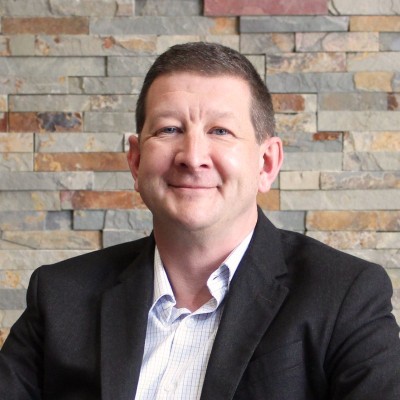
Steve Kooy

Materially Better (IES/Red2Green)
Materially Better is an organization dedicated to transforming the material selection process in the architecture and design (A&D) industry, helping professionals make informed and sustainable decisions. They focus on providing tools, resources, and insights to support sustainable design practices and ensure that materials used in projects contribute to environmental and human health. Through collaboration and innovation, Materially Better aims to guide the industry toward more responsible material choices and promote a positive impact on the built environment.
Currently, Materially Better is working on several strategic initiatives, including improving material transparency and helping firms align with sustainability standards such as the AIA Materials Pledge. Materially Better continues to introduce groundbreaking capabilities for materials evaluation and management. They are focused on three new initiatives. First, we are adding embodied carbon data alongside our unmatched access to red-list product data. Second, we’re adding a CMF interface to our software platform, giving teams new ways to search and organize products. Third, we’re continuing to enhance our management and process tools giving stakeholders better ways to collaborate during the course of a project. These efforts aim to reduce the complexity around material selection and make sustainability a central part of every project.
Materially Better also plays an active role in educating and supporting design teams by bringing sustainability discussions into everyday workflows. By providing resources like data insights and facilitating partnerships with material suppliers, they are driving the adoption of better material practices across the industry.
Their goal in participating in forums and summits is to engage with industry leaders and further refine the tools and strategies needed to advance sustainability in material selection processes.

Charley Stevenson

Matt Root

Building Transparency
Building Transparency (BT) is a 501c3 non-profit organization focused on providing open-access data and digital tools to promote sustainable and impactful decision-making in the construction and building materials industries. BT is composed of experts committed to fostering a transparent ecosystem where verified product impact data is publicly accessible, allowing stakeholders to make decisions that benefit the planet. The organization collaborates with key players to standardize and align data exchange formats, providing accessible tools and support to help users implement product and project-focused sustainability policies.
BT is best known for hosting and maintaining the Embodied Carbon in Construction Calculator (EC3), an open-access tool that helps users assess and reduce the embodied carbon of building materials. The tool is built on a digital database focused on Type III Third Party Verified Environmental Product Declarations (EPDs). Additionally, BT offers tallyLCA, a Revit-based tool for conducting whole building life cycle assessments (WBLCA). These platforms serve policymakers, engineers, designers, and manufacturers by helping them set benchmarks, report impacts, and align with standardized sustainability practices.
Through participation in the Summit, BT aims to gain a deeper understanding of the collective efforts required to create a unified, digitized ecosystem of product impact databases and tools. They seek alignment with frameworks and policies that promote transparency and standardization, ensuring the building and construction sector is equipped to make sustainable and data-driven decisions.
Resources:

Stacy Smedley

GreenCircle Certified
GreenCircle Certified is a sustainability certification body that provides independent verification of sustainable claims related to products, processes, and operations. Their mission is to empower businesses to create positive global change through rigorous evaluation processes that validate environmental claims, ensuring transparency and credibility in the market. GreenCircle's certifications cover a broad range of sustainability aspects, making them a key player in promoting responsible practices across industries.
To support the building materials industry, GreenCircle offers various third-party certifications, including Waste Diversion, Zero Waste to Landfill, and Sustainable Manufacturing Practices. They also provide product-specific certifications like Recycled Content, Closed Loop, and Product Optimization. As part of their strategic initiatives, GreenCircle is currently redesigning their multi-attribute label to align with the Common Materials Framework (CMF), which aims to streamline sustainable practices in the built environment.
By participating in the Summit, GreenCircle seeks to gain insights into how third-party certifiers can further support the Common Materials Framework and how to digitize sustainability data. With their experience in attending industry events like GreenBuild and Living Future, GreenCircle is focused on aligning their certification processes with the evolving needs of the building materials sector to promote responsible material choices.
Resources:
-
Brands You Can Trust: https://www.greencirclecertified.com/brands-you-can-trust
-
Educational Resources: https://www.greencirclecertified.com/downloadable-documents
-
Certificate Database: https://db.greencirclecertified.com/certificate

Katie Feenan

Material Bank
Material Bank is a digital marketplace for the architecture and design (A&D) community, offering material sampling from over 800 brands and 300,000 SKUs across North America and Europe. The platform simplifies the research and sampling process for design projects by providing over 165 sustainability filters to help users find materials in one location. By consolidating project samples into single packages, Material Bank reduces packaging waste, saving over 5.5 million packages from shipment. Additionally, their free sample reuse program helps firms keep used samples out of landfills.
Material Bank is currently focusing on initiatives that support the building materials industry, including its free Carbon Impact Program, which uses the Common Materials Framework (CMF) to create sustainability filters for easy product searches. The platform also offers customizable Excel exports of product data for use in project finish schedules, AIA Materials Pledge reporting, and other tasks. This tool helps streamline workflows for design teams, making sustainable materials selection more accessible.
Material Bank aims to contribute to conversations on sustainability by engaging design teams directly in the material selection and specification process, and hopes to gain insights to effectively standardize and normalize "better" material selections during the Summit.
Resources:
-
FREE Material Bank account registration: https://registration.materialbank.com/?team=Rebecca
-
Firm Embodied Carbon & Interior CEU registration: https://sample.materialbank.com/dyi-ceu-2024
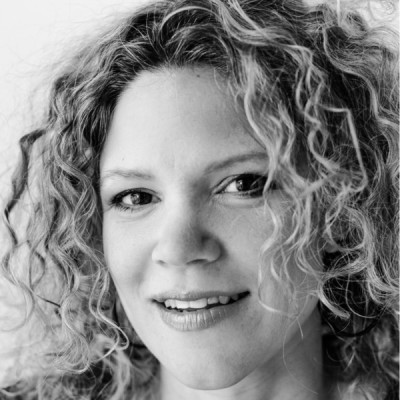
Rebecca Best

HPD Collaborative
The Health Product Declaration Collaborative (HPDC) plays a key role in the building materials ecosystem by establishing the HPD Open Standard, a voluntary and stakeholder-driven standard that has become the leading industry tool for reporting the content and associated health impacts of building products. The HPD is widely recognized and integrated into certification programs like LEED v4 and WELL, and is a key driver for industry efforts toward harmonizing product transparency reporting methods. This approach aims to improve accuracy, consistency, and reliability in communicating health information about building products.
HPDC's strategic initiatives focus on leveraging technology to streamline the creation of Health Product Declarations (HPDs) and support transparency across the industry. By automating processes such as hazard screening for substances and materials found in products, HPDC helps manufacturers generate more accessible and detailed transparency documentation. This technology-enabled approach simplifies the reporting process for manufacturers while contributing to a more informed and safer built environment.
HPDC's participation in the Summit aims to foster harmonization to push for greater transparency and product optimization, with the ultimate goal of helping manufacturers create safer products and enabling project teams to identify and specify healthier building materials.
Resources:

Cory White

AIA
The American Institute of Architects (AIA), founded in 1857, is the largest and most influential network of architects and design professionals globally, with over 98,000 members. AIA members have the unique ability to influence the products used in buildings, directly impacting efforts to mitigate climate change and creating communities where both people and natural systems can thrive. AIA’s Architecture & Design Materials Pledge, inspired by the 2030 Commitment, guides architects in making intentional material specifications that support human health, climate health, ecosystem health, social equity, and circular economy. This pledge evolved into the Common Materials Framework, aligning product specifications with sustainability goals.
AIA is currently focused on supporting the building materials industry through its inaugural firm-level reporting cycle, with results to be published alongside Greenbuild and the Materials Summit. The AIA also offers resources like the Sustainability Action Plan, AIAU Materials Certificate education, and a peer network to help firms commit to sustainable material selections. AIA's ongoing work includes developing annual reports on firm goals and creating education and support resources that further encourage the adoption of healthy, sustainable materials within architectural practices.
AIA has been a long-term collaborator with mindful MATERIALS on the Common Materials Framework, helping establish benchmarks for sustainable materials. They also participate in initiatives like the Embodied Carbon Harmonization and Optimization project and publish annual research, including the Architect’s Journey to Specification, which examines how architects learn about and select materials.
At the Summit, AIA seeks a clear direction for ongoing partnership and collaboration, and for AIA to support transformation of A&D practice toward implementation of Materials Pledge/CMF impact areas.
Resources:

Kathleen Lane

Source
Sector Representation: Residential, Healthcare, Commercial, Retail
Source is a tech organization dedicated to empowering stakeholders in commercial spaces by streamlining product selection and decision-making through transparent data on building materials. With a focus on delivering value and mitigating risks for designers, owners, and contractors, Source offers in-app design tools and dashboards that enable informed, responsible decisions, ensuring well-designed spaces that consider both project goals and sustainability.
Currently, Source is working to support the building materials industry by providing a robust product catalog and innovative technology for specification, decision management, purchasing, and delivery. Their strategic initiatives focus on commercial design professionals and building owners, helping them make better choices through integrated technology solutions that facilitate transparent and efficient project execution.
Source's sustainability efforts are particularly centered on Human and Climate Health, aiming to aggregate and normalize data across different categories and brands to promote more responsible material selection.
By participating in the Summit, Source seeks to understand the ongoing challenges within the industry and identify gaps or hurdles that technology could help address, ultimately supporting the promotion of sustainable materials.
Resources:

Reba Bompiani

International Living Future Institute
The International Living Future Institute (ILFI) is a nonprofit organization focused on transforming the building industry toward a regenerative future. They achieve this by certifying buildings, labeling and certifying products, and providing educational resources and convening opportunities. ILFI plays a critical role in promoting sustainability and encouraging the use of better building materials within the industry.
Strategically, ILFI supports the building materials industry through a number of initiatives, including the Red List program, Declare Label, Living Product Challenge, and Living Building Challenge. These programs provide frameworks for healthier, more sustainable building materials and encourage transparency in product manufacturing. ILFI also hosts various educational opportunities and events to bring together key stakeholders in the movement toward more sustainable building practices.
ILFI has a wealth of experience and past efforts to contribute to conversations about sustainable materials. Through their participation in the Summit, they hope to achieve better alignment in tactics and communication with other stakeholders to strengthen the push for a more sustainable and regenerative building industry.

Mike Johnson

Lindsay Baker
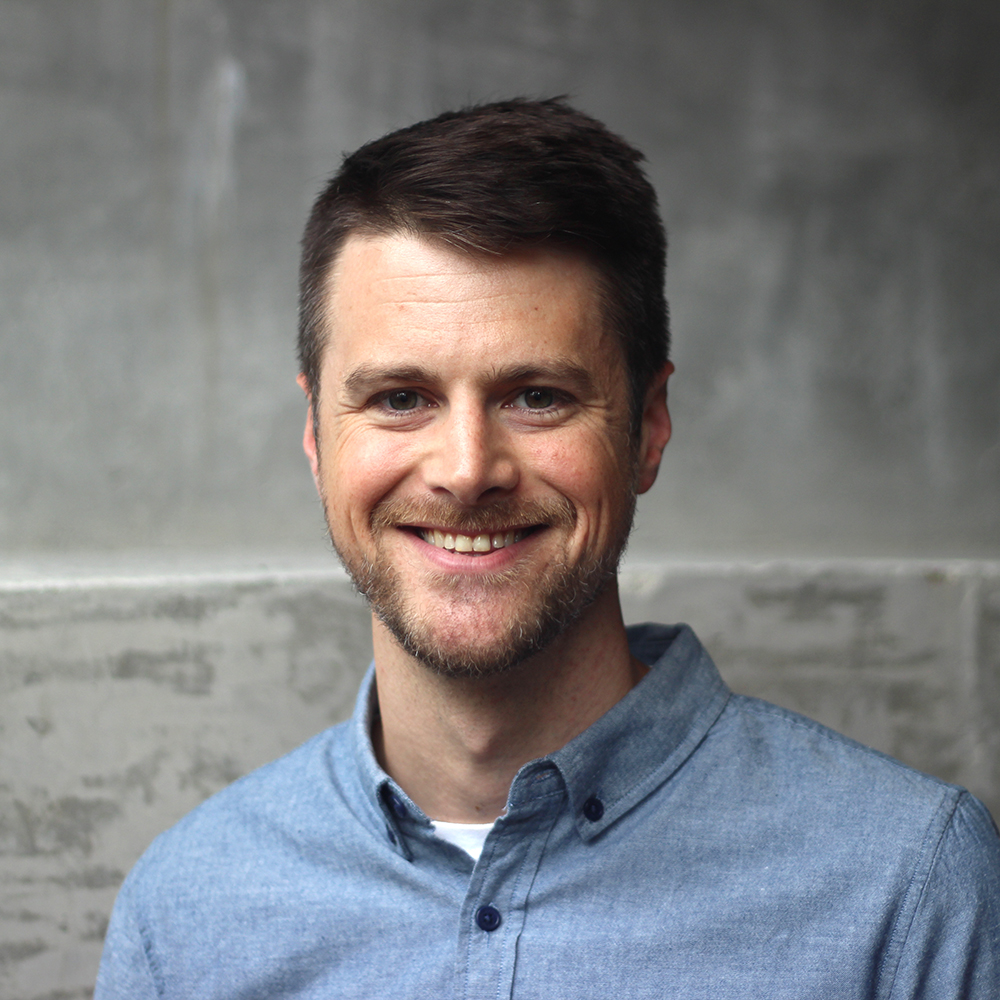
Benson Gabler

C2CC
Cradle to Cradle Products Innovation Institute (C2CPII) is the organization responsible for developing and setting the Cradle to Cradle Certified standard, a global benchmark for safer and more sustainable products. C2CPII operates the Cradle to Cradle Certified program, which evaluates products and their environmental and social performance to guide manufacturers toward sustainability goals. As a third-party certifier, C2CPII plays a critical role in ensuring that materials used in the built environment meet stringent sustainability standards.
The Cradle to Cradle Certified program, launched in 2005, is a multi-attribute certification that assesses products across five key categories: material health, product circularity, clean air & climate protection, water & soil stewardship, and social fairness. This certification provides a comprehensive view of a product's sustainability performance. C2CPII offers three distinct certifications: the Material Health Certificate, the full product certification, and the recently launched C2C Certified Circularity certificate, which focuses specifically on circular design principles.
By participating in the Summit, C2CPII aims to contribute to broader industry efforts to harmonize sustainability certifications and make it easier for Cradle to Cradle Certified products to be discovered and specified for building projects. Their goal is to further integrate Cradle to Cradle Certified products into mainstream sustainable building practices.
Resources:

Ren DeCherney

International WELL Building Institute
The International WELL Building Institute (IWBI) is a public benefits corporation responsible for developing and maintaining the WELL Building Standard and its related certification programs. These standards set requirements for buildings and organizations aiming to meet health and well-being benchmarks and achieve IWBI's certification marks.
Currently, IWBI is focused on aligning its WELL Building Standard with the Common Materials Framework (CMF). This includes mapping WELL’s requirements to CMF metrics, particularly those related to materials health. IWBI is actively involved in efforts to standardize language and data surrounding the health impacts of building materials, supporting the building materials industry's push toward healthier, more sustainable choices.
By participating in the Summit, IWBI aims to foster a sense of collective mission and establish clear medium-term goals, specifically focusing on what the industry can achieve by 2025. The organization hopes to strengthen collaboration among stakeholders to drive progress in health-focused building practices.
Resources:
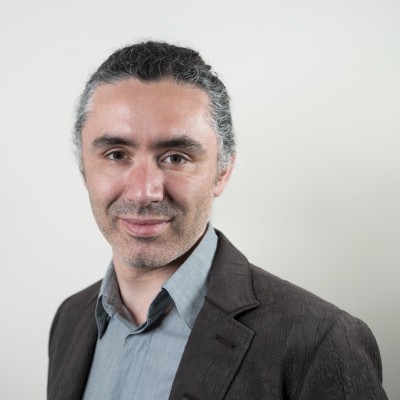
Rodolfo Perez

University College London/Building Passport Alignment Project
The Bartlett is a leading global faculty of Architecture and the Built Environment, committed to addressing key societal and environmental challenges. The Bartlett School of Sustainable Construction is a renowned center for excellence in project management, real estate, and economics research, with a focus on Building Information Modeling, federated data, and the standardization of information structures. Their mission is to foster bold solutions that promote a better future for everyone.
One of the key strategic initiatives currently underway is the Building Passport Alignment Project, which aims to create data standardization for seamless ESG (Environmental, Social, and Governance) reporting. The project is developing a standardized specification for material information that aligns with global reporting standards like BREEAM, LEED, and the EU Sustainable Finance Reporting Directive. By working with mindful MATERIALS, the Bartlett is advancing the building industry's ability to meet comprehensive reporting needs across the entire value chain.
With past experience in leading efforts to streamline information flows in construction and real estate, the Bartlett is committed to improving ESG reporting practices.
The team hopes to use the Summit as an opportunity to connect with engaged organizations, better understand the U.S. market, and collaborate on pilot projects slated for 2025.
Resources:

Kell Jones

Urban Land Institute
The Urban Land Institute (ULI) operates its Decarbonization Program under the Randall Lewis Center for Sustainability in Real Estate, which focuses on climate mitigation by making a business case for green buildings. ULI's approach ties carbon reductions to increased asset value, engaging the real estate industry in decarbonization through three key workstreams: the ULI Greenprint Community, Decarbonization Thought Leadership, and City Engagement. As regulations and investor pressures heighten, ULI seeks to support the industry in moving toward net-zero carbon emissions.
To advance decarbonization efforts in the building materials industry, ULI has launched initiatives like the Embodied Carbon campaign, which includes industry convenings, the development of decarbonization tools and resources, and the recent release of the Materials Movement report. These initiatives are aimed at helping real estate and construction professionals navigate the complexities of reducing embodied carbon in their projects.
With past expertise in green building materials, LEED consulting, and work with green building material manufacturers, ULI contributes significant experience to the conversation around sustainability in real estate.
By participating in the Summit, ULI hopes to continue its role as a thought leader and drive progress in decarbonization across the industry.
Resources:

Kara Kokernak

Grace Farms Foundation, located in New Canaan, Connecticut, is a cultural and collaborative center dedicated to humanitarian work, including efforts to end modern slavery. Through its Design for Freedom initiative, Grace Farms aims to raise awareness and inspire action across the building materials industry by addressing the issues of forced and child labor in supply chains. The organization is housed in the SANAA-designed River building and Barns, surrounded by 80 acres of preserved natural landscapes open to the public, and it fosters both local and global efforts toward peace and grace in communities.
Grace Farms leverages collective influence within the built environment ecosystem by bringing together industry partners through public engagement, events, research, reports, exhibits, and pilot projects. The Design for Freedom initiative, in collaboration with mindful MATERIALS, plays a pivotal role in advancing social health, equity, and human rights due diligence throughout the materials supply chain. This collaborative work aims to address the high-risk materials that contribute to global forced and child labor.
By attending the Summit, Grace Farms hopes to expand its partnerships and research efforts by identifying new collaborators, developing technological solutions, and piloting projects to scale its work globally. The organization is also interested in continuing its collaboration with eco-labels and certification bodies to establish social health, equity, and human rights due diligence as standard requirements in material certifications, further promoting a responsible and transparent materials ecosystem.
Resources:
Grace Farms Foundation
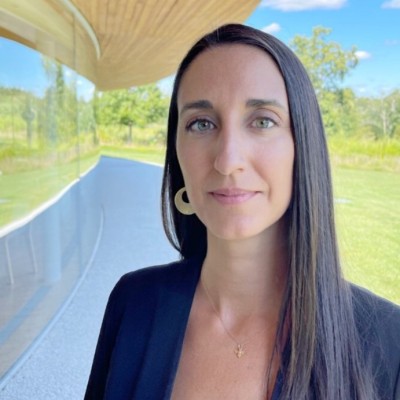
Nora Rizzo

United States Environmental Protection Agency
The U.S. Environmental Protection Agency (EPA) plays a critical role in the materials ecosystem through its Low Embodied Carbon Construction (LEC) team and Environmentally Preferable Purchasing (EPP) Program. The LEC team supports initiatives to measure, disclose, and reduce embodied carbon in construction materials, fulfilling EPA’s responsibilities under the Inflation Reduction Act (IRA) Sections 60112 and 60116. Meanwhile, the EPP Program assists the U.S. Federal Government in meeting sustainable purchasing directives, guided by Executive Order 14057, the Federal Sustainability Plan, and the Pollution Prevention Act.
Currently, the EPA is focused on two major programs to support the building materials industry in reducing embodied carbon: the EPD Assistance Program (per IRA Section 60112) and the Label Program for Substantially Lower Embodied Carbon Construction Materials (per IRA Section 60116). These initiatives aim to provide grants, technical assistance, and labeling to encourage the use of lower-carbon construction materials. Additionally, the EPP program manages the Recommendations of Specifications, Standards, and Ecolabels for Federal Purchasing, ensuring sustainable practices are integrated into federal contracts and procurement tools.
By participating in the Summit, the EPA seeks to engage with key stakeholders, gather insights, and share information about their programs. Their goal is to listen to the needs of the industry and find ways to improve their initiatives, ensuring they meet the sustainability demands of the built environment.
Resources:












